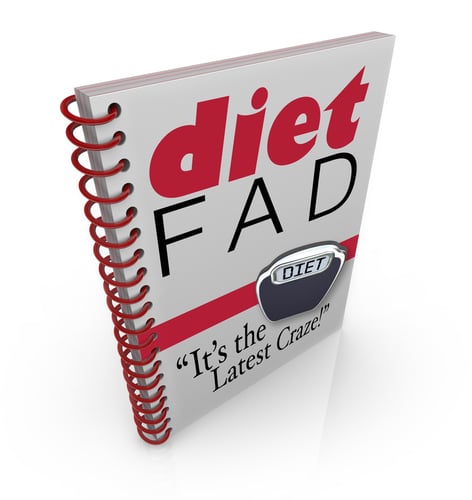
Metabolic Rate Adaptations to Calorie Restriction
According to a study published in PLOS One, calorie restriction triggers metabolic AND behavioral adaptations that make it harder to lose body fat. When you restrict calories excessively, not only does it reduce resting your basal metabolic rate, it changes your behavior. In other words, you move around less to conserve energy. This is something that usually happens without your conscious awareness. For example, you may fidget and move around less without being aware of it.
Fidgeting is an example of NEAT, non-exercise activity thermogenesis. These are the activities you do, like fidgeting, changes in posture, stretching, pacing around, when you’re not doing a structured workout. It turns out that NEAT is a significant contributor to energy expenditure.
The Effect of Calorie Restriction on Thyroid Hormones and Your Metabolic Rate
Thyroid hormones are the master regulator of your metabolism. When you cut back too much on calories, levels of T3, the most active form of thyroid hormone, drops. It’s T3 that primarily controls your metabolic rate. In cases of extreme calorie restriction, T3 is converted to reverse T3, a form of T3 that’s inactive. Reverse T3 blocks thyroid hormone receptors and keeps T3 from exerting its benefits. The result is a slow-down in your metabolic rate to conserve energy.
Calorie Restriction Elevates Cortisol Levels Too
Low-calorie dieting imposes significant stress on your body. Research shows this stress increases levels of the stress hormone, cortisol. Cortisol has a variety of negative effects. It depresses your immune system and makes it more difficult to sleep. It also causes undesirable changes in body composition. High cortisol levels are linked with fat redistribution to the waistline and tummy.
People who have the eating disorder anorexia often develop an increasing girth due to tummy fat, despite weight loss elsewhere. This is due to higher cortisol levels. Plus, cortisol increases the breakdown of lean body mass. That indirectly hurts your metabolism longer term since muscle is more metabolically active.
Calorie Restriction Wreaks Havoc with Appetite Hormones Too
The other way excessive calorie restriction backfires on you is by making you hungry. For one, the rise in cortisol boosts your appetite for carby foods. Other appetite hormones like leptin and ghrelin are affected by calorie restriction too. Leptin not only turns off your appetite – it boosts your metabolic rate, and leptin levels drop when you cut back on calories. It’s your body’s way of motivating you to supply it with more energy.
Ghrelin gets into the picture too by stimulating hunger. It’s partially, due to changes in appetite hormones, that cause people to regain the weight they lost through dieting. According to one study, these changes in appetite hormones persist for up to a year after a person loses a significant amount of weight.
Guidelines for Weight Loss without Metabolic Damage
Here are some guidelines for losing weight without harming your metabolism:
Cut calories back by no more than 500 calories a day when you’re trying to lose weight. Indulge in a weekly cheat meal that’s higher in calories to boost leptin levels and stimulate your metabolism. Don’t try to lose weight quickly – no more than one to two pounds per week.
Make sure you’re getting adequate carbs from whole food sources. When you restrict calories and carbs, it increases cortisol release and lowers T3 levels. Carbohydrates have a protein-sparing effect that helps you hang onto lean body mass when restricting calories.
Don’t combine calorie restriction with extra long periods of cardio. Long cardio sessions increase cortisol release and boost muscle breakdown. Do short periods of high-intensity cardio and strength-training instead.
The Bottom Line?
It takes time to lose weight the right way, the way that won’t damage your metabolism. Losing a pound or two a week may not sound like a lot but doing it at this rate is less likely to down-regulate your metabolism and make it harder to lose weight and easier to regain it.
References:
PLoS One. 2009;4(2):e4377.
Journal of Clinical Endocrinology and Metabolism. Vol. 84. No. 1.
Psychosom Med. 2010 May; 72(4): 357–364.
Metabolism. 27:935–942.
News at JAMA. “Appetite Hormones May Help Explain Why Dieters Regain Pounds”
Related Articles By Cathe:
5 Things That Happen When You Drastically Cut Calories

